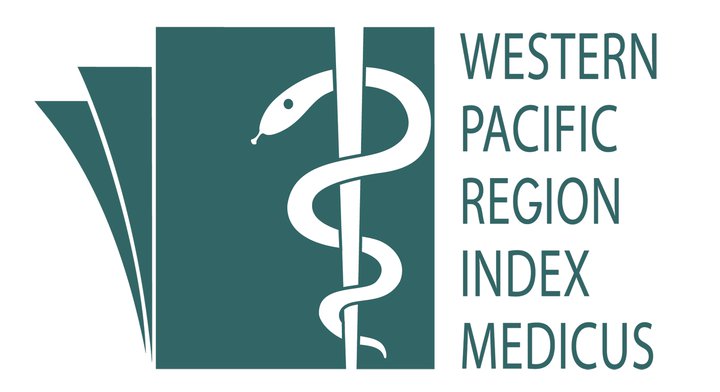The Status of Birth Preparedness and Complication Readiness among Rural Indian Mothers
Keywords:
Birth preparedness - Complication readiness - Cross-sectional study - Rural mothers - Parity.Abstract
Introduction
A cross-sectional study was conducted with the aim to explore the present status of birth preparedness and complication readiness in rural area of West Bengal and determine the possible factor(s) influencing their knowledge and practice regarding this concern.
Methods
Thirty villages with homogenous characteristics were identified by cluster sampling methods from a rural block (Bhatar, Burdwan district, West Bengal) of India on April 2013 to November 2013. From every cluster 7 mothers who had delivered baby within the last year and were available first, interviewed consecutively using a guided questionnaire adapted from JHPIEGO Maternal and Neonatal Health Programme survey tools. Multivariate logistic regression was applied in analysis to predict how much the independent variables influenced the birth preparedness of mothers.
Results
62.4% mothers were found to be well prepared. Trained birth attendants and health facilities were identified before delivery in 81.9% and 78.1% cases respectively. Mode of transportation for complication management or delivery was pre-decided by about 60% of family. Only 35.7% family saved money for the same purpose. Logistic regression revealed that well preparedness increased 11 times with every new pregnancy, but it did not depend on caste and education status of the mothers.
Conclusions
The overall birth preparedness status of the rural mothers is poor and they acquire more knowledge regarding birth preparedness from their self experience rather than from existing health system.
References
Basic Health Indicators. [cited 2012 Nov 21]. Available from: Government of India, 2002, Annual Report 2001-2002, Ministry Of Health and Family Welfare, New Delhi.
Government of India, Annual Report 2001-2002, Ministry Of Health and Family Welfare, New Delhi. 2002.
Abou ZC, Wardlaw T, Stanton C, Hill K: Maternal mortality World Health Stat Q 1996, 49(2):77-87.
WHO: Mother-Baby Package: Implementing Safe Mother- hood in Countries. Practical Guide: Maternal Health and Safe Motherhood Programme In Division of Family Health Geneva.World Health Organization; 1994.
Thaddeus S, Maine D. Too far to walk: maternal mortality in context. Soc Sci Med 1994, 38(8): 1091-1110.
JHPIEGO. Maternal and neonatal health (MNH) programme. Birth preparedness and complication readiness. A matrix of shared responsibilities. MNH; 2001:23-31.
Block-wise Population and No. of Literates: Census 2001. [cited 2012 Nov 21]. Available from: http://bardhaman.gov.in/census/popliterate.html.
Agarwal S, Sethi V, Srivastava K, Jha P, Baqui A. Birth Preparedness and Complication Readiness among Slum Women in Indore City, India. J. Health Popul. Nutr. 2010 Aug; 28(4):383-391.
JHPIEGO. Monitoring Birth preparedness and complication readiness: tools and indicators for maternal and newborn health. Baltimore MD: JHPIEGO.pp 1-19; 2004.
Kochukuttan S, Ravindran TK S, Krishnan S. Evaluating birth preparedness and pregnancy complications readiness knowledge and skills of accredited social health activists in India. International Journal of MCH and AIDS 2013; 2 (1): 121-128.
Kumar V, Mohanty S, Kumar A, Mishra RP, Santosham M, Baqui AH et al. Effect of community-based behaviour change management on neonatal mortality: a cluster-randomised controlled trial in Shivgarh, Uttar Pradesh, India. Lancet 2008; 372:1151-1162.
Counselling for maternal and newborn health care: a handbook for building skills. Department of Maternal, Newborn, Child and Adolescent Health 2013. Pp-97. [cited 2012 Nov 21]. Available from http://apps.who.int/iris/bitstream/10665/44016/1/9789241547628_eng.pdf?ua=1.
Sundar Lal, Adarsh, Pankaj. Textbook of Community Medicine (3rd edition), CBS Publishers & Distributors Pvt. Ltd, New Delhi. 2011; 17-20.
India Ministry of Health and Family Welfare. Janani Suraksha Yojana. Guidelines for implementation. New Delhi: Ministry of Health and Family Welfare, Government Of India, 2006. P 29.
Kushwah SS, Dubey D, Singh G, Shivdasani JP, Adhish V, Nandan D. Status of Birth Preparedness and Complication Readiness in Rewa district of Madhya Pradesh. Indian journal of public health 2009; 53(3): 128:132.
Pembe A, Urassa DP, Carlstedt A, Lindmark G, Nystrom L, Darj E. Rural Tanzanian women’s awareness of danger signs of obstetrics complications. BMC Pregnancy and Childbirth 2009; 9:12.
Kabakyenga JK, Ostergren PO, Turyakira E, Pettersson KO. Knowledge of obstetrics danger signs and birth preparedness practices among women in rural Uganda. Reproductive Health 2011; 8:33.
Hiluf M, Fantahun M. Birth Preparedness and Complication Readiness among women in Adigrat town, North Ethiopia. Ethiop. J. Health Dev. 2007; 22(1): 14-20.
Mutiso SM, Qureshi Z, Kinuthia J. Birth Preparedness among Antenatal Clients. East African medical journal 2008; 85(6):275.
Hailu M, Gebremariam A, Alemseged F, Deribe K. Birth Preparedness and Complication Readiness among Pregnant Women in Southern Ethiopia. PLoS ONE; 6(6): e21432.
Downloads
Published
How to Cite
Issue
Section
License
IJPHR applies the Creative Commons Attribution (CC BY) license to articles and other works we publish. If you submit your paper for publication by IJPHR, you agree to have the CC BY license applied to your work. Under this Open Access license, you as the author agree that anyone can reuse your article in whole or part for any purpose, for free, even for commercial purposes. Anyone may copy, distribute, or reuse the content as long as the author and original source are properly cited. This facilitates freedom in re-use and also ensures that IJPHR content can be mined without barriers for the needs of research.






